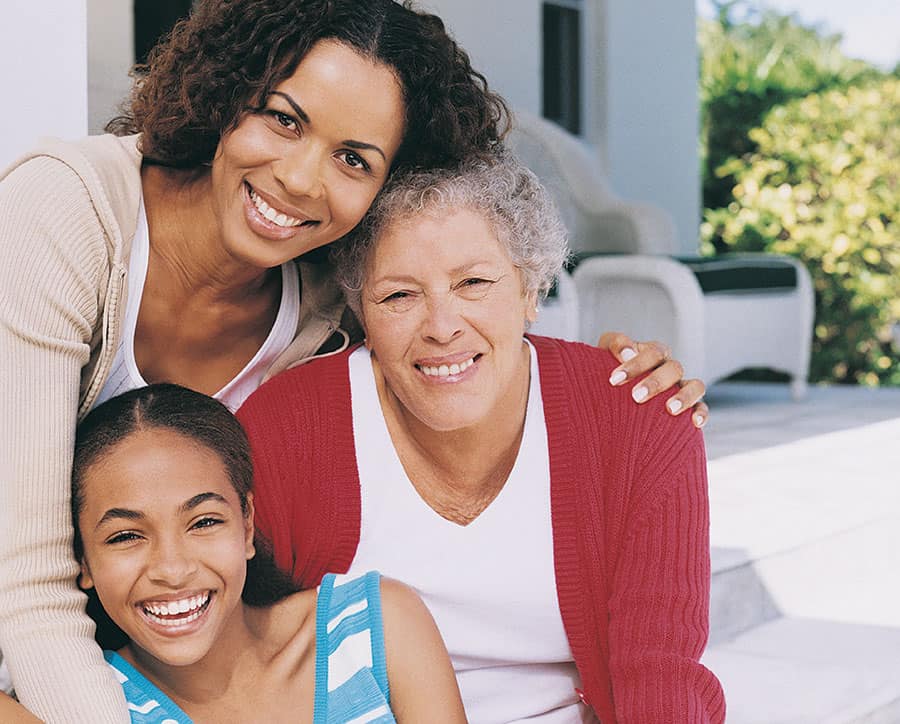by Kathy Wehr, Howard County Office on Aging and Independence Caregiver Support Program

The Sandwich Generation of Caregivers is often defined as individuals providing care to an adult of any age while simultaneously having a child under 18 years of age residing in their home. With this subset alone, caregivers report providing a minimum of 22 hours a week of care to loved ones not living with them, while caregivers with loved ones living in their home reported even more hours of caregiving. For us to realize the scope and importance of Sandwich Generation Caregiving we must understand they can also be located in any of the following subsets as well:
- Parents or others caring for children with disabilities over the age of 18
- Siblings caring for other siblings
- Grandparents caring for grandchildren while also caring for a spouse or other relative
- Grown grandchildren caring for their children while also assisting a parent or grandparent
“Do what you can, with what you have, where you are.”
–Theodore Roosevelt
Think of these caregivers as more of a Multiple Caregiver than a Sandwich Generation Caregiver, and as with all caregivers, they are sandwiched between love, duty and responsibility.
A distinctive characteristic of Sandwich or Multiple Caregivers is that they are younger and newer to caregiving than in past generations. They are often caring for multiple generations at the same time. Howard County has an ethnically diverse population serving families with many traditions and approaches of caring and service. No matter our age or traditions, caregivers are all juggling work life, family life and social life while assisting someone with activities and tasks of daily living. These tasks can include anything from taking someone to the doctor, grocery shopping, visiting, making appointments or calling to check on them. The list goes on and on.…
Caregiving responsibilities more often than not come to us unexpectedly with no plan and what feels like no choice. The impact of being a caregiver to multiple generations while still juggling daily life can bring with it many challenges; such as changes in relationships, ill health and less time for yourself.
If you feel overwhelmed, take time to breathe and embrace change. Caregiving sometimes gets a bad reputation as a burden, but it can be a gift. Know that you are not alone. It is normal to lack a plan going into caregiving. When you accept your “new normal” as a transition instead of a burden you can better manage this unexpected change in your family’s lives.
A few tips to help you along the way…
- First and foremost, recognize yourself as a caregiver or care partner and not just someone doing things for someone you love.
- Seek out and utilize resources and services available to you in Howard County. The Department of Community Resources and Services (DCRS) can assist with services and resources regardless of how old the person is for whom you are caring. Call Maryland Access Point (MAP) 410-313-1234 for more information.
- Take the time to engage your children and other family members with assistance. They may enjoy helping and being a part of the caregiving team.
- Put a plan in place to address changes occurring within the family so life as you know it does not get lost in the shuffle of your caregiving responsibilities.
- Please do not go it alone! Depend on those around you to help. Caregivers usually depend on family first, but remember family is not always defined by blood. Many of us have friends who are just as close to us as our blood family. The age dynamics of a family have also changed throughout the last several decades. Couples are having children later in life, there are more multigenerational family households, people are living longer, and families often do not remain living in the same area.
- Keep an ongoing list of things you need help with and when people ask if they can help say yes!
- Communicate with others involved. Enough cannot be said about keeping everyone that can help in the loop. Whether it is an email or text chain, phone chain or Skype, keeping everyone informed will benefit you, your family and your loved-one. People are more likely to help if they feel included and are part of the team. Share the care!
- Be sensitive to what everyone’s strengths are, and let them help where they are needed, with tasks they are equipped and comfortable handling.
- Most of all, take care of yourself! Don’t let go of your own joys in life. SELFISH CARE IS NOT SELFISH, and the better you are to yourself, the better you are for those around you.
For more information, contact Kathy Wehr at 410-313-5955, or kwehr@howardcountymd.gov.




